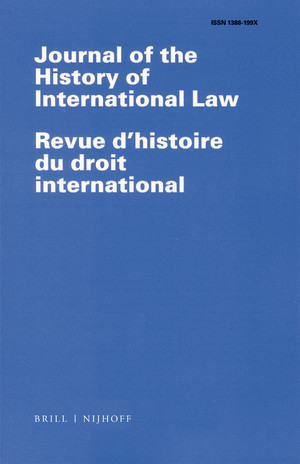(image source: Brill)
Abstract:
This article explores how the Versailles Treaty was shaped by the effects of economic warfare 1914–1919. The First World War was in part an Allied economic war waged against the Central Powers in conditions of advanced economic and financial globalization. This was reflected in the treaty’s expropriation mechanisms, which were used to take control of German property, rights, and interests around the world. Whereas Articles 297 and 298 of the treaty legalized wartime seizures, the Reparations Section of the treaty also contained a provision, paragraph 18, that gave the Allies far-reaching confiscatory powers in the future. The article places these mechanisms in a wider political, legal and economic context, and traces how they became a bone of contention among the former belligerents in the interwar period.
(Read more with Brill; DOI 10.1163/15718050-12340136)

